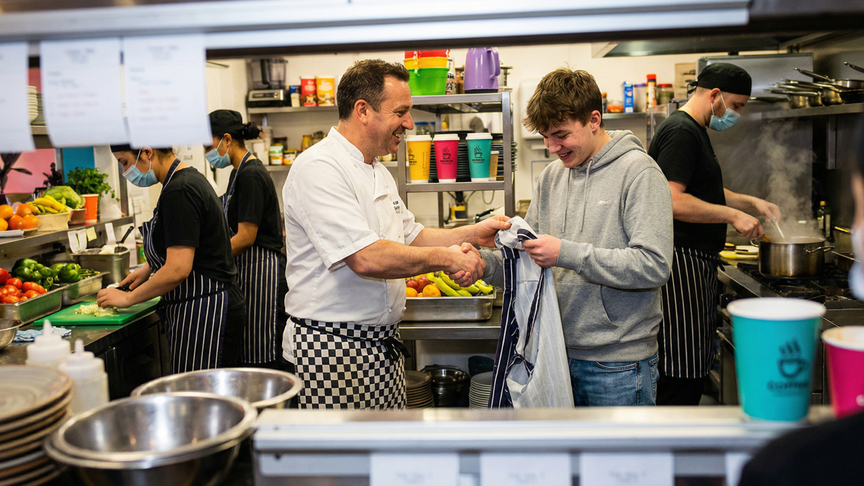At this time of year, having the right people in place isn’t a luxury. It’s what keeps the lights on, the doors open and the standard you’re known for intact.
With many UK SMEs relying on the festive period for more than a quarter of their annual revenue, there is very little room for error.
While the festive season can magnify every staffing wobble, maintaining quality does not have to feel impossible. With the right preparation, small businesses can protect performance, support their teams and stay ahead of demand.
Here is how to do it, even if your workforce feels stretched.
1) Line up flexible staff before you need them
Sainsbury’s and Argos’ move to hire 19,000 extra temporary workers this October wasn’t just about the freedom their scale gives them; it was about timing. SMEs can follow the same logic and unlock similar benefits by acting early. That means lining up a shortlist of temp agencies, flexible worker platforms and local candidates now, and preparing simple, ready-to-use onboarding materials so new starters can hit the ground running.
The same applies when the hiring market doesn’t perform as expected. Last year, KPMG and the Recruitment & Employment Confederation found a sharp decline in UK demand for staff in late 2024 and growing uncertainty about hiring, making late recruitment riskier for businesses. Planning early gives SMEs a stronger chance of finding good people before the market tightens.
2) Focus on predictable shifts, not gimmicks
Higher pay attracts festive workers. Stability keeps them performing.
Recent UK retail scheduling research highlights this clearly. A 2025 survey of retail colleagues found that inadequate scheduling led to missed sales, overworked staff and greater strain on attendance.
Publishing rotas early, avoiding last-minute cuts and offering completion bonuses for pre-agreed shift bundles often works better than one-day incentives. Support also matters: hot meals on peak shifts, clear communication and taxi assistance for late finishes build goodwill and reliability during winter evenings.
3) Hire locally to reduce absence risk
A shift can collapse in minutes when someone calls in sick or faces travel disruption. Geography helps.
A UK commuter-health review from Aberystwyth University found that longer travel times are linked to higher stress and increased sickness absence risk, particularly in poorer weather months.
Hiring locally gives SMEs a better chance of filling gaps quickly and reduces disruption risk. Seasonal job searches surge every autumn. As data from Employment Hero shows, UK SMEs increased hiring by 2.6 per cent in autumn 2025, underscoring how smaller firms prepare ahead of seasonal peaks rather than scrambling during them.
4) Look inward before looking outward
Past seasonal staff, part-timers and alumni often ramp faster than brand-new hires because they already know your systems and standards. Recent figures back an internal-first approach: CIPD’s 2024 Resourcing and Talent Planning report highlights the growing use of internal recruitment to improve retention and time-to-hire, while LinkedIn’s 2024 data shows employees who make internal moves are about 40% more likely to stay at least three years. A short outreach email to previous temporary staff and two quick cross-training sessions for existing employees can increase capacity with minimal onboarding time.
5) Treat December like a capacity planning exercise
Peak season is predictable. Staffing it should be too.
Look at last year’s busiest days and staff accordingly with a buffer. Operations research consistently shows that running at full utilisation increases system failure rates and service breakdowns. A small standby list and cross-trained team members create resilience when someone inevitably needs time off.
Looking ahead
The festive period is high stakes for SMEs. Plan early, support your people and build flexibility now so you can enter January prepared, not recovering.























